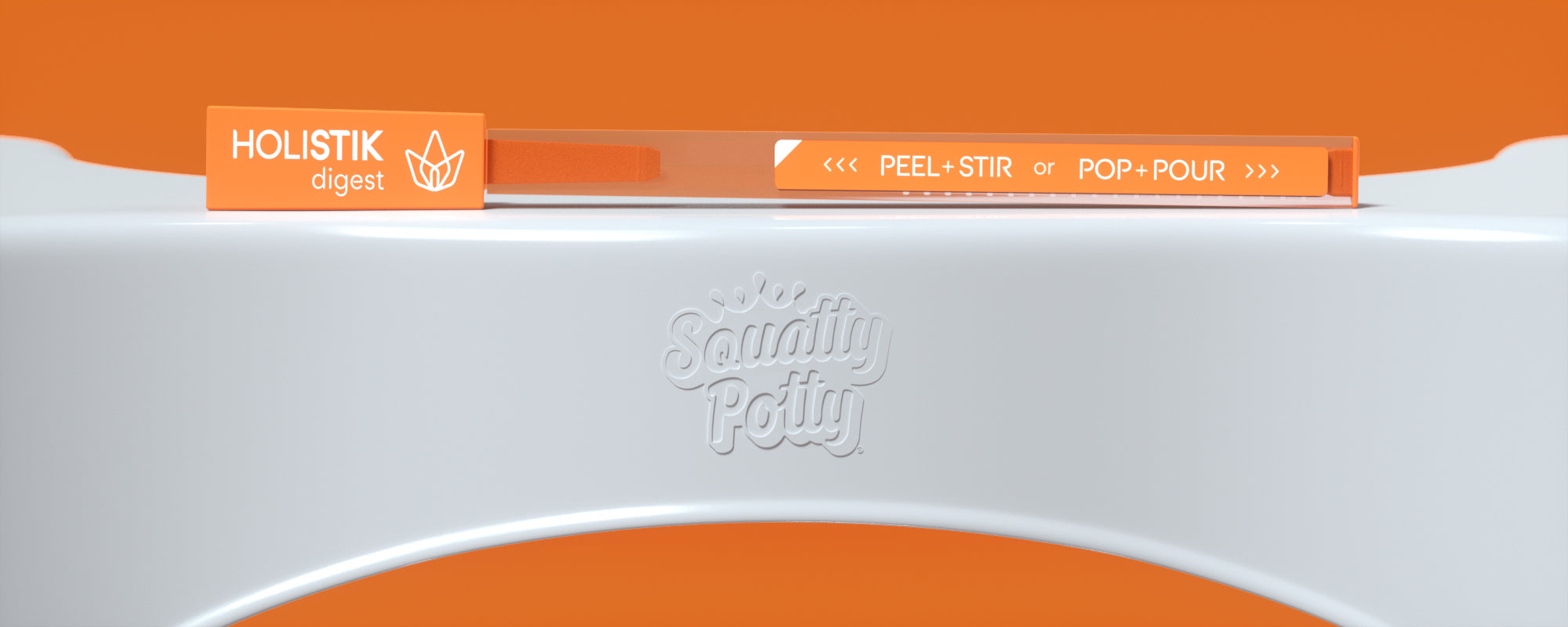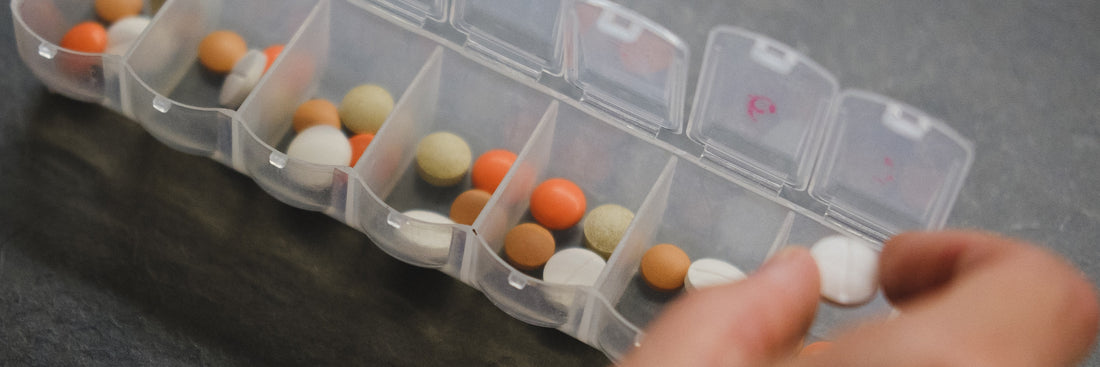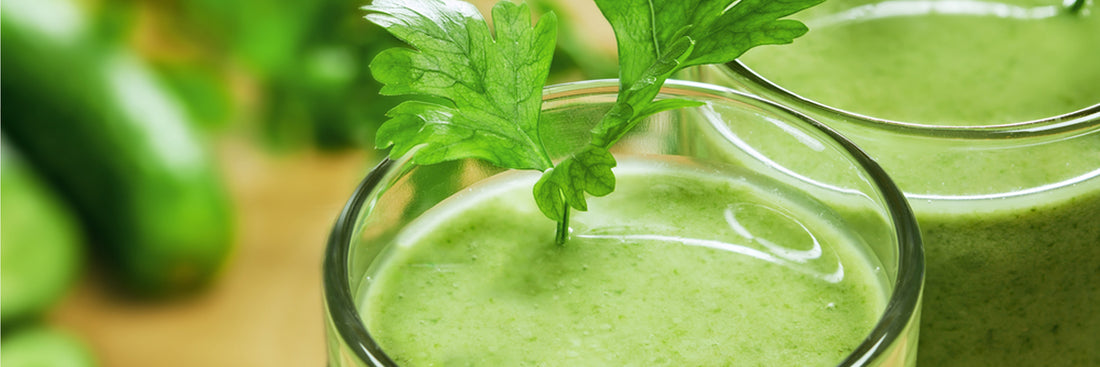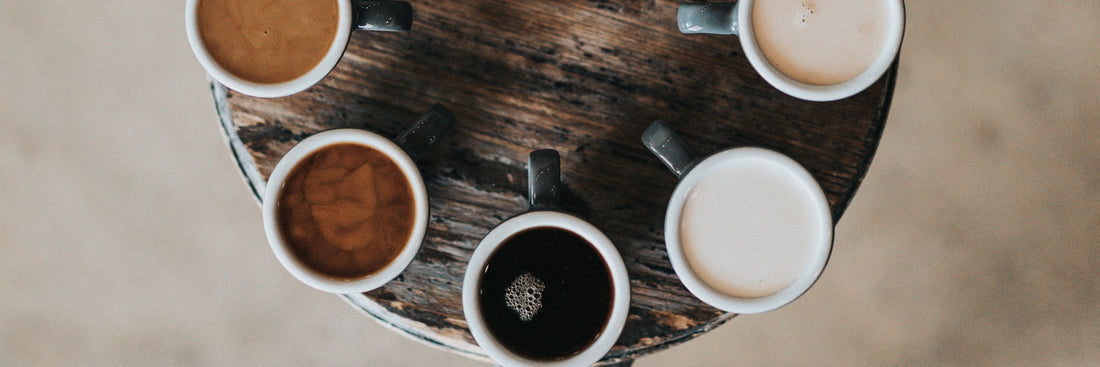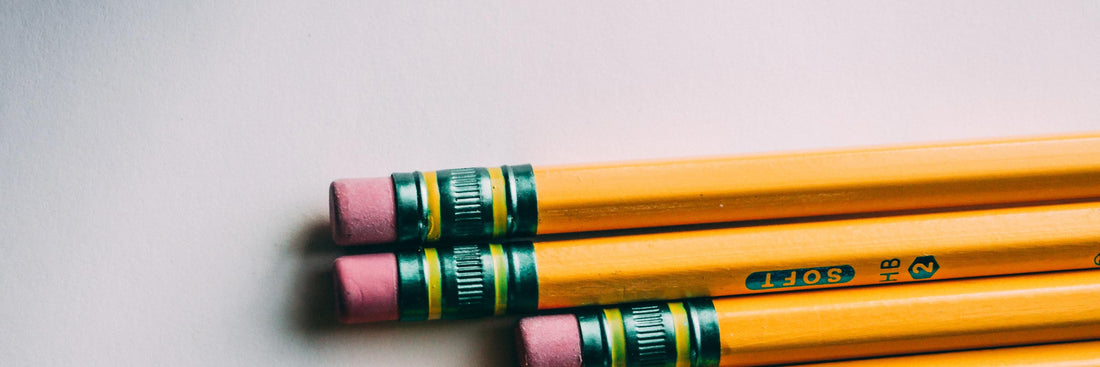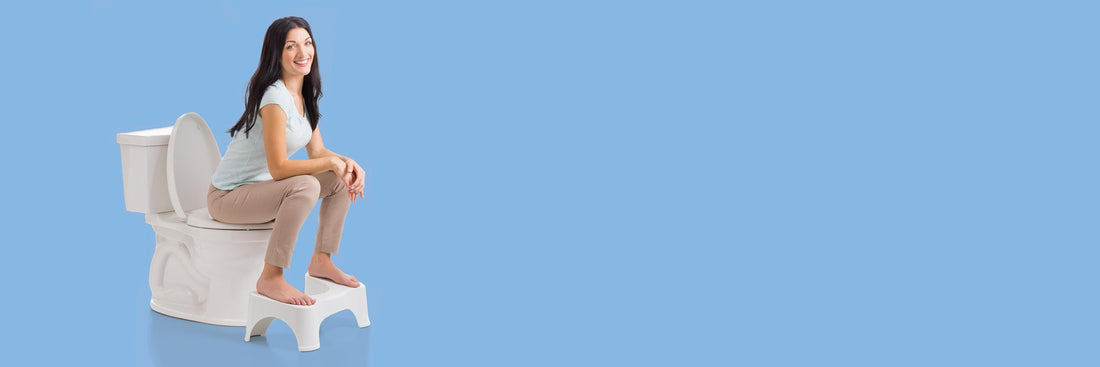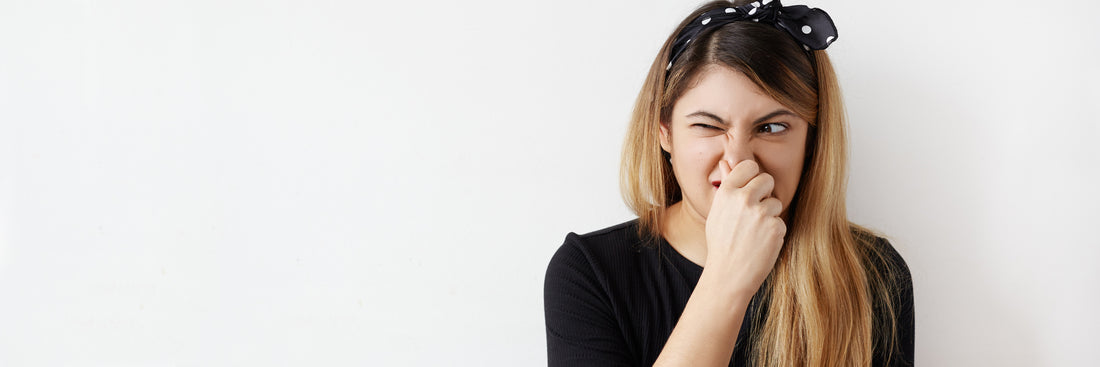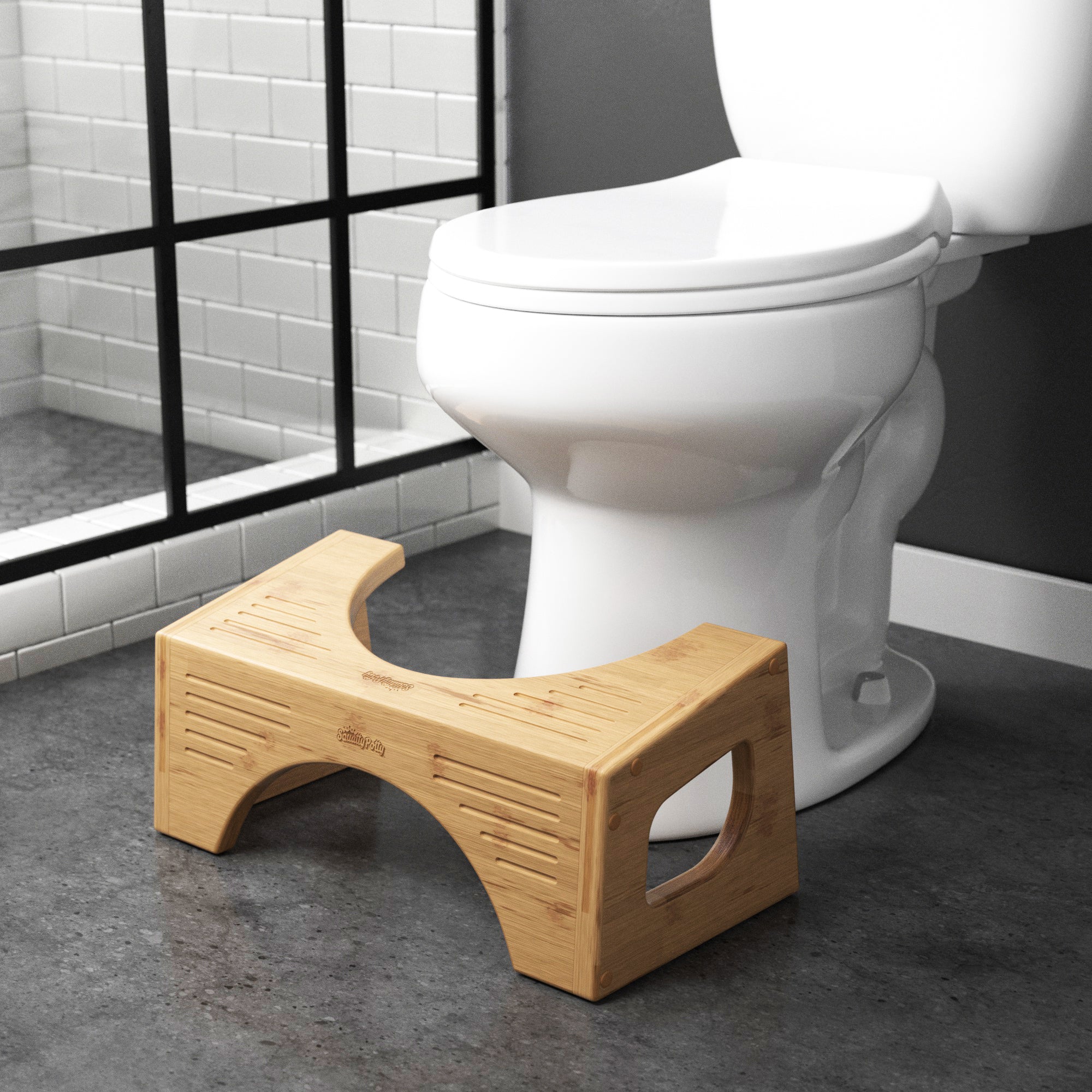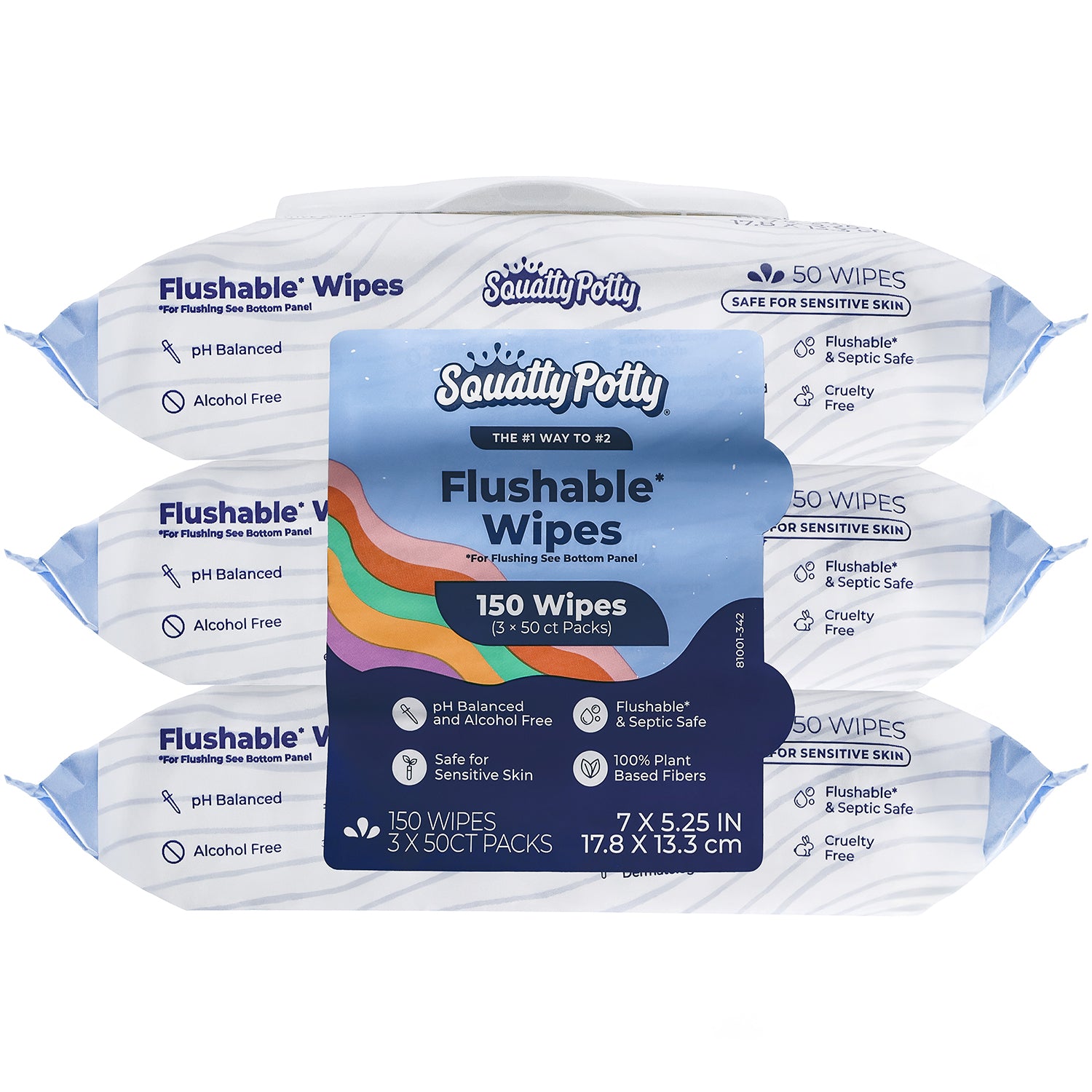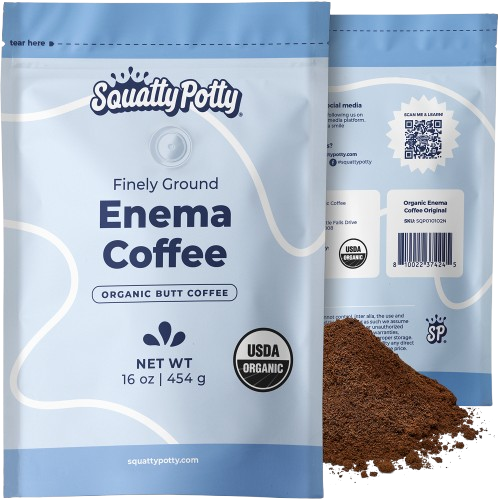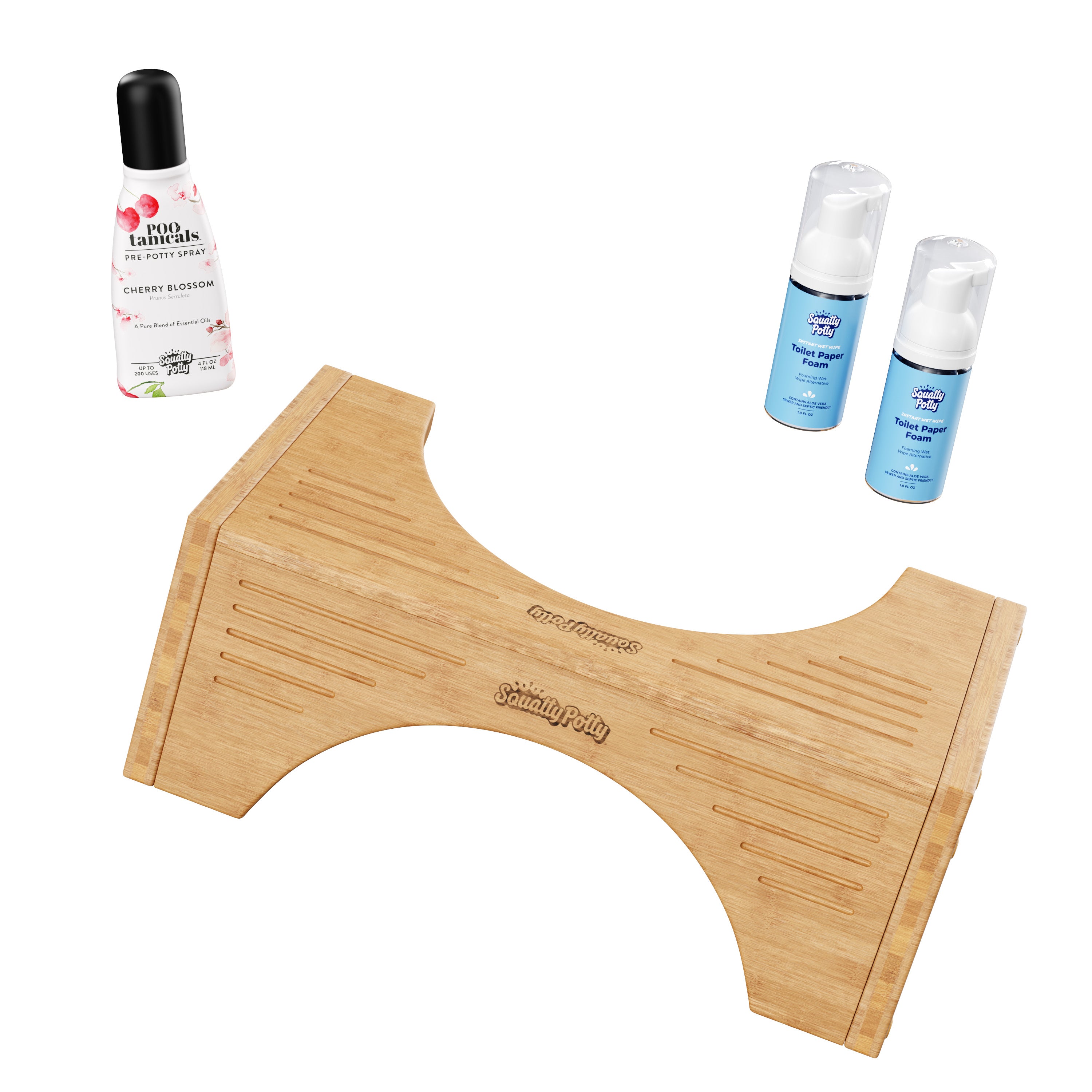Squatty Potty Blog
Pooping for the People
Few things capture our attention like the call to visit the bathroom, particularly if we experience difficulty in that arena. Our humble digestive tracts have long been a source of embarrassment for us, discussed behind closed doors rather than at a party or in the Internet space. Looking at the amount of money Americans spend each year on digestive aids and laxatives and missed work due to tummy troubles – billions of dollars – we can only conclude that we have a problem of epic proportions yet little conversation around it. Troubles in the bathroom are inherently miserable, of course, and can create other problems for your body and mind. This is because your digestive tract is the Grand Central Station of your body, connected to every other system and cell in your body. Your gastrointestinal system is not only the avenue through which you take in and absorb food but plays pivotal roles in detoxification; defense and the function of your immune system; brain health and neurological function; and hormonal balance. Your gut is inextricably linked to the way your body runs on a day to day basis and thus your overall expression of health. Detoxification Containing two of the big five organs of detoxification, your gut is hard at work making sure you stay squeaky clean. The liver utilizes multiple different enzyme types and systems to neutralize toxicants, spent hormones and byproducts of normal metabolism you are routinely exposed to through your environment. Without your liver, it wouldn’t take much longer than six hours for your body to be overwhelmed and expire – that’s how hard it works, filtering blood and lymph. Your liver makes bile, the infamously bitter yellow-green liquid most of us have dry-heaved up at one point or another in our lives. We are quick to dismiss bile as gross and perhaps irrelevant, but bile has a lot of work to do beyond the emulsification of ingested fats. Your bile binds fat-soluble toxicants including steroid hormones and the metabolites of some antibiotics and prescription drugs for them to be excreted. Speaking of excretion, after your liver does its work of neutralizing and binding this harmful waste, it must be removed from your body. It must exit the building. That is where your large intestine comes in, second big organ of detoxification. You need to poop regularly – every day – to clear out all of the junk your liver has rounded up. One final detail that your large intestine provides is that it houses the vast colony of beneficial bacteria that perform a dizzying list of functions for you – including detoxification! These healthy gut bugs play a supportive role in neutralizing your toxic burden. Defense and immune function This may not be immediately intuitive, but you are exposed to most infectious and otherwise harmful substances through your digestive tract. As such, the vast majority of the immune system is found there. Residing in specialized lymph tissue, many different types of immune cells with many different roles are always on the job – patrolling for bad guys and substances and taking action when necessary. The immune system is assisted by your microbiome who actively seek and kill bacteria that do not belong. Under the right circumstances, your immune system runs like a well-oiled machine, finding and killing everything that does not belong in your body and escorting toxicants to the liver. Beyond being the cradle for your immune system, your gut has a couple other defensive tricks up its sleeve. Stomach acid is one of the first layers of defense of the body, a moat of ultra-low pH that kills a lot of bad guys in addition to helping you break down your food. Like bile, stomach acid is woefully misunderstood and dare I say, abused. Acid blocking medications taken for more than several months have the ability to cripple digestion and promote constipation and a host of other complaints beyond the scope of this piece. After the stomach comes the lining of the small intestine, a smart filter that allows the good to be absorbed and deflects the bad so it can be pooped out, destroyed by your immune system or squashed by your gut flora. Brain health, Second Brain health and neurological function A vast network of nerves populates your digestive tract, as many nerves as the spinal cord, second only to the brain. Known as the enteric nervous system (ENS) or the friendlier-sounding Second Brain, this network manages all aspects of digestion, helps control how fast or slow your gut moves and how frequently you poop. Your Second Brain operates independently of the brain in your head, but the two have a tight relationship and are constantly giving and taking feedback from each other. This is why stress amplifies all digestive distress and worsens digestive symptoms. And why those with chronic digestive complaints are more likely to experience anxiety and depression than those who do not. Beyond the intimate connection through your nerves, your gut is a hotbed of activity for many neurotransmitters and feel-good molecules. How silly pioneering scientists must have felt when they realized that up to 90% of serotonin – a compound still known as a neurotransmitter – is produced by the gut, not the brain, and the gut contains most of the receptors for serotonin! GABA, dopamine, epinephrine and norepinephrine are also made by either specialized cells in the gut or the microbiome. As with serotonin, there is great receptor density in your gut for these compounds, which means your gut is the primary site where their message is heard. Gives a whole new spin on gut feelings, doesn’t it? Hormonal balance Many of you may consider hormones as relegated to the arena of glands and mysterious secretions, and yet, like the Wizard of Oz, your gut is there, behind the curtain, pulling levers that can confer hormonal balance or disruption in a variety of direct and indirect ways. Your gut helps remove, activate and recycle hormones, and through the gut-brain connection it can also indirectly influence their production. Estrogen is a steroidal hormone detoxified by the liver and removed via the large intestine. Without daily pooping, your body’s burden of estrogen and other steroidal hormones is increased. Symptoms outside of the gut crop up: acne, hot flushes, painful periods and headaches. We seek specialty care for what can be resolved by regularity. Your gut keeps hormones balanced beyond their removal. Up to 20% of thyroid hormone is activated by your microbiome. Microbial activity helps sensitize thyroid receptors so active thyroid hormone can do its job. If there are significant issues in your microbiome, your thyroid function can be impacted. Chronic digestive pain and distress and a disrupted microbiome will shape the signals your gut sends to your brain. Stressed out messages from the gut will be duly noted by your brain, which directs your adrenals to make more stress hormones. This can start a domino effect, negatively impacting the production of sex and thyroid hormones as well. Isn’t it amazing then, the power of pooping? When you poop every day, you help your body remove self-made and environmental compounds that would harm you. When you poop every day, you shore up your defense against pathogens and make it less likely for your immune system to mount a response against the food you eat, your healthy bacteria, or your own cells. When you poop every day, you help soothe your nervous system and promote those good gut feelings. When you poop every day, you are directly helping your hormonal balance. And that is just the start of it. Dr. Jillian Sarno Teta is the author “Natural Solutions for Digestive Health” and the creator of Fix your Digestion. She is best known for her expertise in digestive health and has been working in this field for over ten years. Her website, www.jillianteta.com contains her blog, free programs and training series and more.
Learn moreHow a Poop Company Amassed a Cult Following
Squatty Potty® toilet stool is designed to put you in the natural squatting position right over your own toilet. Squatting to eliminate is proven to straighten out your anorectal angle to prevent blockage of crap (literally) in your colon and allow for a faster, more complete elimination; giving relief to preexisting issues and preventing issues from starting. I mean, everyone wants to poop better. But, before Squatty Potty, you’d never be caught dead talking about this in a public setting. So, how in the world did Squatty Potty make what once was just a geriatric device, something cool enough to suggest to your friends? Too many people have been suffering in silence to the sound of grunts and sweat dripping off the forehead. There has been a real issue here. Even worse, some even thought that this was normal. You should never have to strain to eliminate. But, without your BFF Google, you wouldn’t know that. Squatty Potty knew the information needed to be shared, so they started brainstorming. With over 27 Million views in a week on their latest video titled, Discover the Most Pleasurable Way to Poop, it’s safe to say what they created is ‘marketing magic’. Let’s call it a “spoof-educational commercial”. You laughed for three minutes straight, yet now know what a puborectalis muscle is and, more importantly, what to do to relax it so you can poop better. Every living human does it, and until now, it was a topic that wasn’t widely talked about. Squatty Potty commercials have opened the door for conversation, resulting in a cult following of happy poopers. The company caught the attention of Bloomberg News when they released their first commercial in 2015, This Unicorn Changed the Way I Poop, which lead to a 600% increase in sales AND won a Webby Award! (kind of a big deal). Bloomberg explains the Squatty Potty as “a toilet accessory that’s gone from giggly subculture to full-blown phenomenon.” In 2016 Buzzfeed published an article, 17 Things You’ll Understand If You’re Slightly Obsessed With Your Squatty Potty. #11 is my personal favorite. With over 277,000 loyal squatters on Facebook, I think it’s safe to say that squatting to poop really works.
Learn more7 Home Remedies for Colon Cleansing
Do you regularly suffer from constipation or irregular bowel movements? You're not alone. Research suggests that 15% of Americans are victims of chronic constipation, which can be a dangerous affliction. Such digestive diseases lead to the build-up of waste on the walls of the colon. The colon performs many essential functions— not only does it aid in the elimination of stool, but it also extracts salt and water from waste, maintains pH, and fights against harmful bacteria. The malfunctioning of the colon can cause serious health implications such as skin allergies, gallbladder stones, heart diseases, etc. Luckily, there are things you can do to improve your colon health. Eating healthy foods, exercising, and using a toilet stool have been proven to help you enjoy more satisfying poops and alleviate gastrointestinal problems. Shop Stools Easy and Quick Home Remedies for ConstipationMany have found that performing a colon cleanse is an easy preventative to avoid colon problems in the future. Green Vegetables Leafy greens are nutrient powerhouses; spinach, kale, brussel sprouts, asparagus, collard greens, leeks, and peas are all rich in Chlorophyll which helps cleanse the intestinal tract and, as a result, soothes the colon. They also help detoxify the liver and protect the body from environmental toxins. You can boil or steam the veggies, add them in soups or sauté them with a bit of butter or olive oil. Eating green veggies and implementing a Squatty Potty into your toilet routine can lead to smoother, healthier movements. Not sure which toilet stool is right for you? Use our guide to find the stool that best suits you. Choosing The Right Squatty Potty For You Ginger Ginger has antiseptic properties and is beneficial as it stimulates digestion. It can be added to any juice or eaten directly. Add one teaspoon of ginger juice and honey, and mix it in one cup of warm water. You can consume this mixture twice a day. You can also make a smoothie using: 1 tablespoon of ginger (peeled) 1 apple (sliced) A cup of spinach 1 carrot (sliced) Blend all these ingredients with 1 cup of water, and your smoothie is ready. Drink it once a day to ensure proper functioning of the intestinal tract. Juices made by using apple and lemon Apples and lemons are rich in nutrients that improve the digestive action, such as vitamins C & A, antioxidants, and fiber. You can make delicious juices from these fruits: Take ½ cup of apple juice, add 2 tablespoons of lemon juice, and a teaspoon of ginger juice. Mix it in ½ cup of warm water. You can drink this mixture once a day to help detoxify the colon and encourage proper digestion. Apple Cider Vinegar Unfiltered apple cider vinegar helps flush out waste from our bodies while retaining the beneficial bacteria. Drinking apple cider vinegar with honey cleans the colon and restores the digestive system. Consuming this mix and utilizing a Squatty Potty to ease constraints on your digestive tract will help your poo slide right out of you. Mix raw apple cider vinegar and honey in equal quantities (2 tablespoons) Mix it in one cup of water and drink it once daily. It will not only remove the toxins but includes tons of other benefits such as preventing diabetes and lowering bad cholesterol. Eating Fiber-Rich Foods Fiber is excellent for keeping your bowels healthy and cleansing the colon by eliminating waste from your body. Eating grains that are high in fiber, such as beans, lentils, quinoa, oatmeal, and vegetables like peas, artichoke, and brussels sprouts, will help make your gut health even healthier. Raspberries, mango, figs, and coconut also help nourish the colon. Adding fiber-rich foods and propping your legs up on a bathroom stool will allow your colon to straighten and your waste to come out cleaner. Most people don’t realize, but pooping with your feet on the ground can cause a kink in your tunnel, which can lead to major blockage. Squatty Potty undoes this kink so you can do your business quickly and cleanly. Sea Salt and Water Water plays a significant role in detoxifying our bodies. When the colon is dehydrated, it is easier for the toxins to stick inside and form a build-up. You must consume at least 2-2.5 liters of water daily to ensure optimum colon functioning. Add one teaspoon of sea salt to half a liter of water and drink it before breakfast (before eating anything else). Drinking the mixture encourages bowel movement and improves digestive health. Chia and Flax Seeds Both these seeds are superfoods that are high in fiber. They also contain Omega 3 fatty acids that reduce inflammation in the colon and remove the built-up toxins. You can add a teaspoon of the seeds in water, drink the mixture, make a pudding, or sprinkle them over salads. Soak a tablespoon of chia seeds in one cup of water for 5 to 10 minutes so the fiber can perform its optimum function by absorbing water Mix the seeds in about 1 cup of yogurt Consume this mixture 4 times a day for about 4 weeks to cleanse the intestinal tract. There are different over-the-counter colon cleansing supplements also available in the market. Performing a colon cleanse is vital because it doesn't only eliminate bacteria and improves digestion but also promotes weight loss and prevents various diseases. The Final TurdImplementing these quick and easy home remedies can help you avoid irregular bowel movements and prolonged constipation problems. In addition to consuming healthy foods and drinks, regular exercise, and assuming a squatting position with a toilet stool, can help unclog your pipes when you unload the goods. While we can’t help you stick to your diet, our Squatty Potties can help you have healthier, more satisfying bathroom experiences. Shop Stools Disclaimer: The words and other content provided in this post, including linked materials, are not intended and should not be construed as medical advice. If you or any other person has a medical concern, consult with an appropriately licensed physician or other health care professional immediately. Do not rely on the information presented in this post. Never disregard professional medical advice or delay seeking it because of something you have read in this blog post or any linked materials. If you think you may have a medical emergency, call your doctor or 911 immediately.
Learn moreCoffee and Pooping…What You Should Know
Coffee and Healthy Pooping Caffeine is a mixed bag when it comes to you and your poop. If you suffer from irritable bowel syndrome or colitis, caffeine can cause flare-ups, according to this study by alternate beverage company Teecino. Coffee can also worsen acid reflux, a condition which affects around 20% of the Western world according to BMC Gastroenterology. Coffee as a laxative However, it can’t be denied that, for healthy adults, a morning cup of coffee can help… get things moving. Yep, coffee makes you poop. Whilst some of this can be attributed to caffeine’s laxative effect, there are many chemicals in coffee and scientists aren’t quite sure which one is doing what. Caffeine stimulates the central nervous system, which is the brain and spinal cord. The vagus nerve links the central nervous system to the digestive tract. So stimulation to the central nervous will also affect digestion. In addition, coffee contains colon stimulating agents theophylline and xanthine which get that colon moving faster than it would otherwise. The dangers of coffee Whilst it can be tempting to use coffee to save money on laxatives, this approach has it’s dangers. The Mayo clinic recommends drinking less than 400mg of caffeine a day. That’s about as much as four cups of coffee, though obviously it depends on what kind of coffee you are drinking. If you go above this amount you will likely experience loose stools as well as putting yourself at risk of more alarming symptoms such as muscle tremors and heart palpitations. Be careful as well with other drinks that contain caffeine such as tea and soda; it all adds up. Remember, the best way to promote healthy pooping is to eat a balanced diet with plenty of fibre. Be sure to get plenty of fluids and move around regularly as well. Healthier alternatives If you’re finding it hard to cut back on your coffee habit you could try some healthier alternatives. Switching to low acidity coffee helps digestion in people prone to acid reflux by eliminating the chief trigger. Low acidity or acid free coffee also reduces the risk of ulcers, which are more common in people in people who consume a lot of acidic food and drinks. This for especially beneficial in seniors, for whom conditions such as ulcers and acid reflux are more dangerous.You could also try decaffeinated coffee, though interestingly scientists have found that even decaf has laxative effects. Whilst there is nothing wrong with a morning poop after your daily cup of coffee, be mindful of the health effects too much coffee can have. Caffeine is a drug like any other, and if you have a health condition like acid reflux, consult your doctor before drinking any caffeinated beverage.
Learn moreCollege Freshman’s Worst Nightmare Comes True
Freshmen have a lot to worry about. “What will I wear on my first day? Do we have assigned seats? What if I get lost? What if my roommate is a slob? What if my roommate hates me? When is lunch?” That’s not even including the topic of community bathrooms. “Do we have a bathroom schedule? What if I take longer than the 3 minutes assigned?” or the dreaded: “what if I clog the toilet?” Well, this dreaded option was a reality for this poor University of Utah freshman; we’ll call her the anonymous pooper. You read that right. Anonymous pooper, the poor soul, clogged the co-ed community toilet. She did what any sensible freshie would do when they can’t find a plunger and left it for the janitor to handle (no one wants to claim that thing). As if this could get any worse- there is a group message going off about said clogged toilet. #wasntme The anxiety-ridden anonymous pooper is now panicking. Naturally, she sent out the last-resort SOS to mom. At least she has a sense of humor. Lucky for anonymous pooper, her mom had a solution other than transferring schools: Unicorn Gold (an odor eliminating spray with gold nanoparticles to completely eliminate odor, or in this case: multiple-day clogged-toilet stench). She sent a box of Unicorn Gold spray to the University, along with Squatty Potties (to ease that bathroom timing anxiety we talked about earlier). What a good mom.
Learn moreBack to School Pooping Tips
America’s kids are heading back to school. Yay!!!! Summertime often means going to bed late, sleeping in late, eating junk food, drinking sweet drinks, traveling to fun places and all-in-all messing with healthy diets and bathroom habits. Therefore, lots of kids and adults for that matter, need to hit the reset button once school starts. Time to get back into a routine which means reestablishing good eating, sleeping and a healthy bathroom ritual. Our body does better with a good night’s sleep, eating a healthy breakfast and attempting to go poop before we are off to school and work. In fact, our brain sends a signal to our gut to poop shortly after we eat breakfast. This is called the Gastrocolic reflex. If we establish the routine of listening to our bodies, we will feel lighter during the day and our brains and bodies will function better. This routine also helps us avoid a very common and consequential issue amongst many school age kids where instead of listening to their bodies urge to go, they hold their poop inside. The result, over time this can stretch the colon and interrupt the body’s natural propulsion or movement of poop out of the body which can then lead to constipation. The longer the stool is held in the colon the more it dries out, which makes the problem even bigger. This typically will lead to frequent stomachaches even to the point where some kids and adults end up in the emergency room. They often think they have appendicitis when, in fact, their “pipes” are clogged, stretched and need to be cleaned out. I like to analogize your intestinal tract to your sink’s pipes as I do in my book. Both can become clogged and both can require a clean-out to resume proper flow. Therefore, much like the kitchen sink, if you put the right stuff down your “drain” making sure to keep a steady flow by listening to your body and using the Squatty Potty for the final push out, you won’t have stretched out clogged pipes. So, what is a good, healthy breakfast comprised of and how do we know our diet is healthy overall? Well, most of the time our body directs us to these answers by what our poop behaves like. I highlight these characteristics in my book discussing what I call the 5 S’s. I tell my patients all the time that they must be good poop detectives making sure that they pay attention to the 5 S’s and telling their parents if they have poop problems. The 5 S’s Their clues: Shape, Soft, Sink, Shape and Shoot Shape – logs, hot dogs, snakes – NOT tiny meatballs, rabbit poop, baseballs, footballs Soft– not hard Sink– it should mostly sink Shade– brown-not black, not red Shoot– you should sit on the toilet, and with Squatty Potty’s help, it should “shoot” out. No straining, no pain, no need to push for several minutes. If you or your child’s poop isn’t behaving like the 5’s, you might have a problem. The root of the cause most often is DIET. So, back to a “healthy” breakfast. Drink water first, during and after meals. No animal milks. The only animal milk that is good for us comes from humans, not other animals. Cow’s milk makes our guts unhappy, unhealthy and constipates us. The good bacteria in our guts hate it. It causes a war in there! Really, dairy (cow’s milk, goat’s, yogurt, cheese, ice cream) in general should be limited or not consumed at all. Don’t worry. Your bones won’t crumble without them. You will get plenty of calcium if your gut is healthy because a happy gut absorbs nutrients better and can even make vitamins and minerals. A healthy gut comprised of a healthy balance of bacteria (microbiome), is directly influenced by our diet. Cow’s milk does not make it happy/balanced. It angers and inflames it! Drink water, not juice! Eat foods from Mother Nature, not from plastic wraps or bags. Chew fresh fruits rather than drink them. Vegetables, eggs, lean meats, legumes, etc. If you need sweet, steel-cut oatmeal with cinnamon and a little real maple syrup or honey with tons of fresh fruit would be a good healthful choice. Avoid the processed food choices: cereal bars, granola bars, pizza, lunch meat, “itos”-Doritos, Fritos and Cheetos, and no “ades”-Gatorade, Powerade, Koolade, no juice, no soda. WATER!! Make sure your kids can bring their water into the cafeteria at lunch. If not, they will be given choices like juice or cow’s milk – white, strawberry, or chocolate. Drinking water and listening to your body’s cues to poop will prevent constipation. Adding the Squatty Potty toilet stool, will likely assure you and your family will be expert poopers and live happier and healthier lives! Be poop detectives, eat and drink healthy and use the Squatty Potty to eliminate your perfect poop!!!
Learn moreShould I Squat to Poop?
Are you sitting on the toilet while reading this? Great timing, but not so great posture. Let me explain. Although The United States has been quite attached to their modern commode, many countries around the world have squatted to poop for centuries, and science is starting to catch up. Your body relies on a bend in the colon, (where your poop lives) and the anus, (where your poop says hi) to keep everything stored until showtime. Your Puborectalis Muscle helps keep your poop in place by kinking your colon, much like a bend in a garden hose stops the flow of water, when you’re sitting or standing. This muscle is helpful for when you’re sitting and don’t want to poop, but unhelpful for when you’re sitting and do want to poop. Your colon’s sweet spot comes with the squat. This tells your Puborectalis Muscle to fully relax. Squatting straightens the kink and allows for a complete elimination. Need the facts? We got ’em. A researcher named Dov Sikirov asked groups of study participants to poop while squatting. He compared how long each bowel movement took and the effort required. Sikirov published his results in Digestive Diseases and Sciences and found that in a squatting posture, subjects required, on average, only one-third the time to poop. Plus, subjects who squatted rated the experience as much easier than those who sat.In Japan, researchers took this quite a bit further. Six patients had their rectums filled with a contrast solution that could be seen under X-ray. The patients then ‘released’ the fluid from a squatting or a sitting position while being filmed with X-ray video. The videos showed that the anorectal angle increased significantly from 100 degrees to 126 degrees, from a sitting position to a squat, making elimination much easier in the squat. With this knowledge, Squatty Potty’s founders created a solution: a stool that works hand in hand with the modern toilet. Squatty Potty is designed to tuck in under the toilet when out of use, is the correct height to simulate the squat depending on the height of your toilet, and allows for healthier elimination for people of all ages.Select Squatty Potty models are sold in stores at Bed, Bath & Beyond, Costco, Target, and Ace Hardware. Squatty Potty sells online at the Squatty Potty website, Ebay (make sure to read this if buying through ebay), and Amazon. We refer our Canadian patrons to Canadian Tire, Cayne’s, Bed Bath and Beyond online, or Amazon.ca. You can search for a retailer near you here. Just wait, there will come a time when people will scratch their heads at that strange dark time in history when folks sat straight up to poop.
Learn moreEver wondered why you get butterflies in your stomach when you feel nervous or stressed?
It is thought that, as well as nutrition and lifestyle choices, our state of mind may actually impact our digestive system. Interestingly, it seems the deal works both ways: scientists are increasingly convinced that the contents of our digestive system may have a major impact on our state of mind. Did you know: that 100 trillion microorganisms live in your intestines: that’s more than 10 times the number of human cells in your body. Just like weeds compete with flowers for space and nutrients in a garden, ‘bad’ bacteria compete with ‘good’ bacteria inside the gut. If the gut environment is healthy, ‘bad’ bacteria struggle to flourish. We obviously want the good bacteria and all of their powerful benefits. There are Clostridium Butricum- which produces important fatty acids, Bifidobacteria- which produces vitamins, and Lactobacilli- which boosts immunity and protects against carcinogens! A healthy gut environment stimulates the digestive process, aiding the absorption of nutrients, and helps provide gut wall resistance. A healthy gut environment prevents growth of harmful, pathogenic bacteria, and breaks down poorly digested food. In return for their hard work, the bacteria get to thrive in a safe, nutrient-rich environment. Wondering how the gut affects the brain? Over 100 years ago, Russian immunologist, Elie Metchnikoff, proposed that a healthy gut environment could help combat senility and suggested that the good bacteria found in yogurt would increase a person’s longevity. Today, researchers are beginning to understand the role of gut bacteria in immunological, metabolic, and neurological diseases: what we eat can alter the composition and function of the gut bacteria and this has an effect not only on the metabolism, but also on the brain function. Who knew the two were so close! The gut and the brain communicate more so than you’d think. Microbial compounds communicate with the brain via the vagus nerve, the largest nerve in the body. Gut microbes interact with the immune system, which communicates with the brain. The gut releases hormones and neuroactive compounds which travel through the blood stream. They communicate so much so that scientists have named the gut the “second brain”! Did you know: that the digestive tract forms over 70% of the the body’s immune system? Or that the nervous system of the gut contains more neurons than the entire spinal cord or that it’s able to regulate itself without brain interaction? So, how does the brain affect the gut? The brain has a direct effect on the digestive tract. In fact, the very thought of eating can stimulate salivary glands and release gastric juices which help prepare for digestion. Once food reaches the stomach, receptors send their own signals. These signals cause the release of more gastric juice and muscular contractions. When you have eaten enough, the digestive tract releases satiety hormones which signal to the brain that the person is no longer hungry. That’s your gut giving feedback to your brain! As you’ve probably experienced, your gastrointestinal tract is sensitive to emotion, stress, anxiety, and depression. Fear or sadness can make you feel nausea or have loss of appetite, whereas love can give you the feeling that “butterflies are in your stomach”. Now, what can you do with all of this information? Here are some tips to a healthier mind & a healthier gut: Balancing the mind: As we have seen, the gut is sensitive to our emotions and our state of mind. There have been a few studies to prevent anxiety and handle stress. Take time to quiet your mind and meditate. The Dalian University of Technology in China did 74 meditation trials at Johns Hopkins University in Baltimore on mindfulness meditation. They found that five 20-minute sessions of meditation reduced the amount of cortisol that was released in response to the stress test. Squat to eliminate.Relaxing the muscle around your colon is crucial in full elimination. To do so comfortable, use a Squatty Potty. An average American can have up to twenty pounds (I repeat, twenty pounds!) of stool AKA, toxic waste in their digestive system. Squatting to eliminate can allow your body a complete elimination and prevent an unhealthy gut. Take time for restful sleep.Studies at the University of Pennsylvania found that 4-5 hours of sleep at night for one week resulted in participants feeling more stressed, angry, sad, and mentally exhausted. When resuming normal sleep patterns, participants reported a dramatic improvement in mood. Engage in daily exercise.The University of Georgia found that regular exercise reduced patient anxiety by 20%. Exercise sessions greater than 30 minutes were better at reducing anxiety than shorter sessions. And of course, follow the Squatty Potty motto: healthy colon, happy life!
Learn moreStinky Poo: Why It Reeks and What You Can Do About It
Nobody expects poop to smell good, but sometimes it smells so bad you expect to hear about it on the six o’clock news. It’s worse if it’s your own, but even worse when you drop the stink bomb in a public restroom or at a friend’s party when people are lining up to use the restroom. Oh, the shame! The good news is that you can make your poop less stinky and have more satisfying eliminations along the way. Eating healthier, getting your gut checked, and using a toilet stool to unkink your colon are easy ways you can help quell the smell. We’ve done some research to reveal the reasons your poop stinks and how you can make the stench of your waste go from woeful to wonderful. Let us help you make and take more pleasant smelling poops. Squat More The science is in—the most effective and efficient way to poop is to position yourself in a natural squatting position. Pooping with your feet flat on the floor can lead to a kink in your intestines, which can cause major blockages. Clogs from kinks can result in the buildup of bacteria in the digestive tract. This bacteria is often the culprit of nasty odors in your waste.Using a specially designed toilet stool, helps undo the kink in your digestive system without any extra effort on your end, so you can take healthier smelling poops. Not sure which toilet stool is right for you? Use our guide to find the best stool for you. Shop Stools Eat Less Remember, what goes in must come out. The more you eat in excess of what your body needs, the uglier it gets on the other end. If you commonly feel bloated after eating, you may be consuming more food than your body can comfortably digest. Here are a few suggestions on how to cut back: Eat 10 percent less across the board. Serve yourself smaller portions, and don’t come back for seconds. Eat more, smaller meals throughout the day. Stop eating two hours before bedtime. Consume Less Sulfur-Rich Food Sulfur is an essential mineral, so you don’t want to eliminate it from your diet, but if you eat a lot of sulfur-rich foods, the excess sulfur may be making your stool more odoriferous than normal. Here’s a list of sulfur-rich foods to try and avoid: Arugula Coconut milk, juice, and oil Cruciferous vegetables (bok choy, broccoli, cabbage, cauliflower, horseradish, kale, kohlrabi, mustard leaves, radish, turnips, watercress) Dairy (except butter) Dried fruits Eggs Garlic Legumes (beans) Cut Back on Processed Foods Processed foods contain synthetic ingredients, some of which your body may be ill-equipped to digest. Switching to a whole-food diet is the easiest, most complete solution. Otherwise, read food labels and choose only those packaged foods that use all-natural ingredients. Sticking to an all-natural diet won’t be as easy as propping your feet up on a toilet stool, but it can have a significant impact on the stench of your stool. Trim the Fat Excessive dietary fat can lead to undigested fat in the stool — a condition referred to as steatorrhea. If your body doesn’t produce enough lipase (a fat-digesting enzyme), the undigested fat putrefies as it makes its way through the colon, producing a foul-smelling odor. Of course, your body needs fat in order to function, but try to eliminate trans fats and scale back your consumption of saturated fat. Trans fats (also referred to as hydrogenated and partially-hydrogenated fats and oils) are common in fried foods, bakery items, chips, crackers, and other yummy treats that are bad for you. You get saturated fat primarily from animal products, including red meat, pork, poultry skin, full-fat dairy products, mayonnaise, and eggs. Just like using a toilet stool, cutting back on fat can help eliminate bad bacteria that leads to foul-smelling fecal matter. Get Checked for Lactose Intolerance If you experience diarrhea, nausea, abdominal cramps, bloating, or gas 30 minutes to a couple of hours after consuming dairy (milk or ice cream, for example), you may have lactose intolerance, which is also contributing to your smellier-than-normal poops. With lactose intolerance, your body doesn’t produce sufficient amounts of the lactase enzyme to break down the lactose (a sugar in milk), so the undigested lactose lands in your large intestine where it is fermented by bacteria, a process which produces stinky gas and poop. If you have lactose intolerance, you have three options for dealing with it: Avoid dairy Switch to lactose-free dairy products Take lactase enzyme supplements, such as Lactaid, before consuming dairy Check Your Meds and Supplements Medications may increase levels of sulfur and other chemicals in your body that produce stinky stools. Sulfur drugs, such as Bactrim, are used to treat bacterial infections, and all diuretics except spironolactone can increase sulfur levels in your system. Here’s a short list of supplements that may also increase sulfur levels: Alpha lipoic acid Chondroitin sulfate DMPS DMSO Epsom salts Garlic Glucosamine sulfate Magnesium sulfate Milk thistle MSM N-acetyl cysteine (NAC) Taurine Review all medications and supplements you take with your healthcare provider to identify any substances that may be causing problems. Spray Before You Squat If you have only the occasional stinky poo, don’t be alarmed. Temporary changes in diet and how you feel overall can have a short-term impact on the odors you emanate. Just be prepared. Along with their collection of toilet stools, Squatty Potty offers several Pootanical Sprays that can help turn foul into fragrant. A few puffs of an aromatic pre-potty spray can trap bathroom odors beneath your toilet's water line. Just spray before you go, and no one has to know. Keeping one in every bathroom can help leave your home smelling fresh. Shop Pre-Potty Sprays Get Your Gut Checked If nothing you’ve tried to normalize your digestion has worked, consider having your gut health evaluated by a qualified medical professional. What you consider to be a problem with overly odoriferous stools may be a symptom of a more serious underlying health condition, such as: Food intolerance Insufficient production of stomach acid Insufficient levels of digestive enzymes Imbalanced intestinal flora — the bacteria and other microbes that inhabit your gut and aid in digestion (see “Restoring Intestinal Flora Leads to a Healthy Gut and Happy Poop“) Irritable bowel syndrome (IBS) Ulcerative colitis Celiac disease Crohn’s disease Giardiasis The takeaway lesson here is that stinky poo is no laughing matter. Don’t dismiss what may be a valuable warning sign of a serious underlying condition. Have your issues checked out by a medical professional who can identify and treat the underlying cause. The Final Turd Poop will always have a smell, but using these simple tips and tricks to take your waste from nasty to normal in a flush. Watching your diet, checking your medications, and assuming a squatting position with a Squatty Potty are all effective ways to keep your poop smelling pleasant. Shop Stools Disclaimer: This blog post on odors associated with feces of the human digestive system, provides general information and discussion about medical issues and health-related subject matter. The words and other content provided in this post, and in any linked materials, are not intended and should not be construed as medical advice. If you or any other person has a medical concern, consult with an appropriately licensed physician or other health care professional immediately and do not rely on the information presented in this post. Never disregard professional medical advice or delay in seeking it because of something you have read in this blog post or in any linked materials. If you think you may have a medical emergency, call your doctor or 911 immediately.
Learn more

